Drinking a cup of coffee in the morning, whether it’s white or black coffee, has been a common ritual for hundreds of millions of people.
But even so, a common question about drinking coffee will still be enquired:
Is drinking coffee daily good for you?
Coffee is a beloved beverage known for its energizing effects that boost your energy levels when you wake up on the wrong foot. In fact, more than 50 percent of Singapore adults drink 1 to 2 cups of coffee every single day.
In many nations, lemon water and plain regular water are the most consumed beverages in the world. But do you know which beverage ranks next to them? That’s right – coffee!
Unfortunately, there are still many concerns brewing over the effects of drinking coffee; some agree that drinking coffee can indeed be beneficial, especially since coffee beans are one of the best antioxidant-rich foods, while some disagree that drinking this beverage is good for them.
Is drinking coffee every day really bad for you?
There’s still disagreement about whether or not having coffee regularly is bad for you or not. For some people, it definitely has some health effects – leaving them feeling anxious, jittery, and unable to focus.
Apart from these health complications, what are the health benefits to drinking coffee?
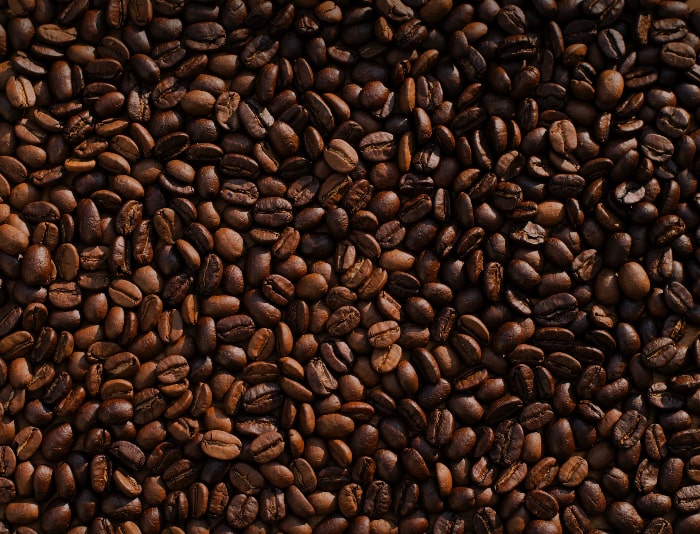
Coffee may be high in caffeine, but did you know it is also rich in antioxidants alongside other small amounts of micronutrients that your body needs?
However, to fully answer that we first have to look at studies conducted on both health benefits and side effects of having coffee regularly.
In this article, we will be covering:
- Past Studies About Coffee-Drinking
- What is Coffee?
- What are Different Types of Coffee?
- 7 Health Benefits to Drinking Coffee
- Nutritional Facts About Drinking Coffee
- Can You Have Too Much Caffeine in Coffee?
- Precaution
- In Conclusion
Past Studies About Coffee-Drinking
There was a research in the year 2012, by a research team of NIH’s National Cancer Institute (NCI), that explored the association between coffee drinking and the risk of death. Those who drank 3 or more cups of coffee per day had approximately a 10% lower risk of death.
Why is that so?
Coffee drinkers were less likely to die from stroke, heart disease, injuries and accidents, diabetes, and infections. (more on this later) But of course, more research will still have to be done.
The next study conducted looked at people living in America, and found that the top coffee drinkers there were less likely to die compared to the non-coffee drinkers after adjustments for smoking and other potential risk factors were made.
This, too, will have to be researched further and backed up more to be qualified as evidence.
What is Coffee?
If you are someone who is wondering what coffee is, it’s actually a very common beverage you’d find in almost every coffee shop, food court, and even cafe such as Coexist Coffee Co. in Singapore. Even your family could be brewing them at home!
What is the actual definition of coffee?
Coffee is a beverage that’s brewed using very hot or boiling water, and coffee beans that have already been roasted and ground. The coffee beans used in general, are sourced from coffee plants, members of the botanical genus Coffea. The beans are found inside the plant’s fruit, which is known as cherries.
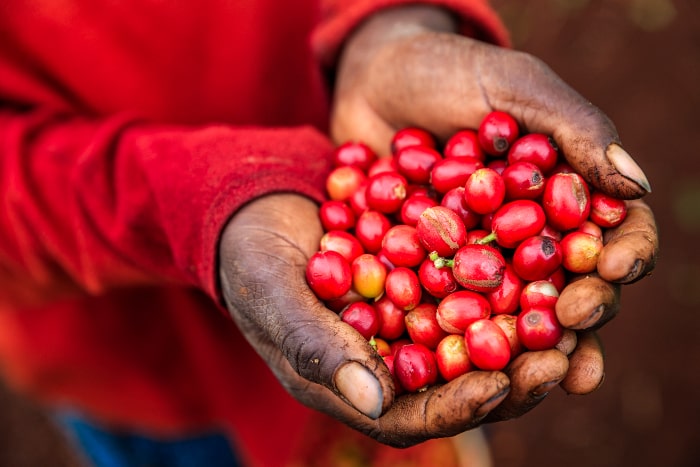
For the coffee beans inside the cherries to be harvested, they first have to be fully matured and ripen; and they take about a year to do so!
All commercially grown coffee plants are from a region of the world known as the Coffee Belt. The trees grow best in rich soil, with mild temperatures and frequent rain. For that reason, they can only be grown in temperatures between Tropic of Cancer and Tropic of Capricorn, regions located between latitudes 25 degrees North and 30 degrees South.
What are Different Types of Coffee?
You may know there is white and black coffee, but did you know there are also other different types of coffee drinks out there, each differs based on the type of beans used, and the methods used to brew it.

Beyond the traditional cup of coffee, a few common variations include:
- Cappuccino
- Espresso
- Americano
- Irish coffee
- Latte
- Caffè mocha
- Turkish coffee
- Cold Brew
- Caffè macchiato
- Iced coffee
- Caffè Cubano
- Flat white
7 Health Benefits to Drinking Coffee
Need more reasons to start drinking coffee?
In addition to its energizing effects, coffee has been linked to a long list of health benefits, such as being a powerhouse of antioxidants, and many more.
Source of Antioxidant
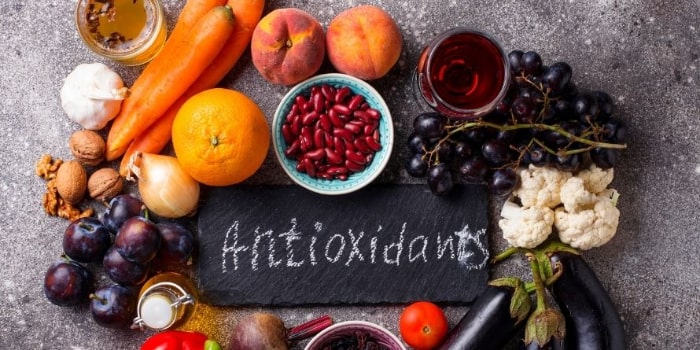
Some sources show that coffee, being one of the top sources of antioxidants, may contain properties that are stronger than cocoa or some forms of tea leaves!
How does the antioxidant level in coffee compare to other raw ingredients?
Research shows that having an average cup of coffee might contain more antioxidants than green tea. In fact, coffee is so rich in several classes of powerful antioxidants – including hydrocinnamic acids, and polyphenols – that they can help neutralize free radicals and prevent oxidative stress, all of which may prevent a number of health complications, such as heart disease, cancer, and type 2 diabetes.
Protects Liver Health
Another one of the health benefits to drinking coffee is that it helps increase circulation and stimulate the liver.
For example, a study published by the Division of Gastroenterology and Hepatology, University of Missouri, Columbia showed that an increased intake of coffee may reduce the risk of hepatocellular carcinoma, and the advancement of fibrotic disease in a variety of chronic liver diseases.
Supports Cognitive Function

Coffee also has been shown to increase blood flow to the brain, which helps support cognitive function. In fact, drinking coffee has been shown to be a natural treatment for Alzheimer’s as well as other neurological conditions.
How is drinking coffee related to neurological conditions?
In an animal study done by the Florida Alzheimer’s Disease Research Center, it was shown that mice – when given caffeine in their drinking water – showed protection against memory impairment, and brain levels of abnormal protein amyloid-beta, which is thought to be one of the leading factors to Alzheimer’s development.
May Have Anti-Cancer Properties
Here’s a piece of good news for everyone – there’s a link between having coffee and a lower risk of cancer!
Emerging research published noted that drinking coffee was associated with a lower risk of multiple kinds of cancer, including oral, colon, liver, and even prostate.
May Help Prevent Diabetes

There’s a good amount of evidence that has linked drinking coffee to a lower risk for type 2 diabetes. One such example would be drinking two or three cups of coffee per day was associated with a lower incidence of type 2 diabetes in younger women.
In fact, each cup of coffee drunk was linked to a 6% lower risk of developing type 2 diabetes.
Why is that so?
It’s believed that coffee has the ability to produce insulin to regulate blood sugar levels by preserving the function of beta cells in your pancreas.
Moreover, coffee is also rich in antioxidants which may affect insulin sensitivity, which is involved in the development of type 2 diabetes!
Boosts Metabolism
For those who are looking to lose weight or shed some pounds, look no further.
One of the biggest benefits of drinking coffee is that it can help boost metabolism, which could boost fat-burning ultimately. According to a study, caffeine was able to boost metabolism by an average of 7 percent within three hours of consumption.
To maximize the full ability, it’s best to minimize the use of added sugars or creamers, and stick to unsweetened coffee black, or other coffee instead!
Improves Physical Performance

Are you an athletic performer who is looking to bring your next workout session to the next level?
Here’s a piece of good news!
One of the benefits of coffee for both men and women is that it has the ability to enhance your physical performance by increasing your alertness and improving your mental and physical performance during that short while!
According to research, caffeine helps increase power and endurance for many athletes, going as far as increasing power output in race conditions that last as long as hours!
Nutritional Facts About Drinking Coffee
Of all beverages out there, coffee is a much better option compared to the likes of energy drinks, sweetened juice, or tea.
For those who are unfamiliar with the nutritional value of coffee, one 8 milliliters cup contains about:
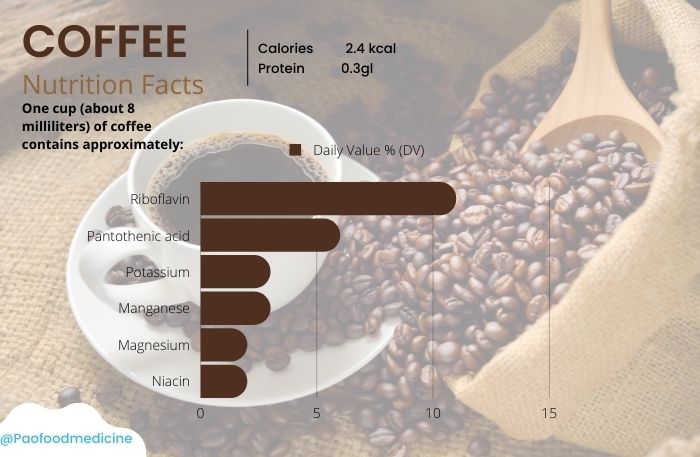
- 2.4 calories
- 0.3 gram protein
- 0.2 milligrams riboflavin (11 percent DV)
- 0.6 milligram pantothenic acid (6 percent DV)
- 116 milligrams potassium (3 percent DV)
- 0.1 milligram manganese (3 percent DV)
- 7.1 milligrams magnesium (2 percent DV)
- 0.5 milligram niacin (2 percent DV)
Can You Have Too Much Caffeine in Coffee?
The level of caffeine in coffee can vary depending on factors like the type of bean, manufacturer, and the method of brewing coffee.
To answer that, we first have to look into how much caffeine each type of coffee contains.
Brewed Coffee
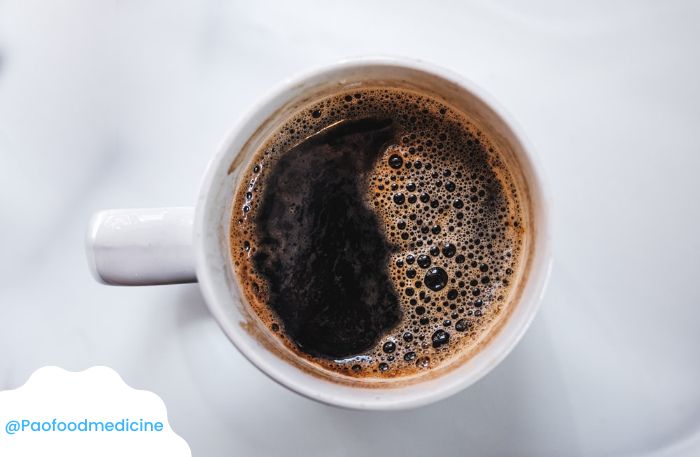
Brewing is the most common method to make coffee in America and Europe.
One cup of brewed coffee contains about 70-140mg of caffeine.
Instant Coffee

Instant coffee is made from brewing coffee that has been dried by freezing it.
Instant coffee usually contains less caffeine than regular coffee, with one cup containing roughly 30–90 mg.
Espresso

Espresso is made by forcing a small amount of hot water jet through finely-ground coffee beans.
One shot of espresso is generally about 30–50ml, and contains about 63 mg of caffeine.
What are the side effects of having too much caffeine?
Caffeine in coffee may be high in antioxidants, but too much of it is actually linked to side effects such as anxiety, heart palpitations, and restlessness.
How much is too much?
General speaking, consuming 400-600mg per day of caffeine is not linked with side effects in most people. That is about 4 to 6 average cups of coffee per day.
However, it’s noted that caffeine affects people very differently, so you’d still have to seek your doctor’s advice if you decide to change your dietary habits all of a sudden.
Precaution
For pregnant women, the amount of caffeine recommended is much lesser than the average person – around 200mg daily or less.
Drinking coffee in Singapore is so common that most people consume more than the recommended dosage and hence reported having some symptoms which include nausea, anxiety, and insomnia.
In fact, most health experts recommend drinking between one and two cups a day ideally for it to be enough for most people beneficially.
In Conclusion
Coffee is a great beverage made from roasted and ground coffee beans, which are derived from the berries of the coffee plant. In fact, it boasts some incredible health benefits along with high antioxidant levels that could rival some other top antioxidant foods, such as cinnamon.
However, that good side also comes with adverse effects as having too much caffeine has been claimed to be associated with increased addiction, anxiety levels, restlessness, and many more.
Now back to the main question: is it good to drink black coffee every day?
Drinking coffee can be beneficial to you. But only if taken with the recommended dosage and in moderation!
What do you think of having coffee? Are you a heavy drinker or just someone who enjoys drinking it once in a while?
Let me know in the comment down below!
More Nutrition Articles
Vitamin E in Food: 10 Foods That Are High in This Vitamin and Their Benefits
Vitamin E is a fat-soluble vitamin with several anti-inflammatory and antioxidant properties that protect your cells from oxidative stress.
Here are the top 10 foods high in vitamin E and also its health benefits.
Vitamin K Deficiency and Ways to Reverse Naturally
In most cases, vitamin K deficiency is actually a rare case on its own. While it’s not known to be one of the common deficiencies, it can cause serious complications such as bone loss, excessive bleeding, and more. Not only is vitamin K essential for blood clotting as many would know, but it is also…
Are Miso Soups Healthy? Health Benefits of Miso That You Did Not Know!
Miso pastes are a staple of Japanese cooking and have even made their way to the western world as the main ingredient for so many dishes besides miso soups. Miso paste has been used traditionally to help treat many illnesses such as chronic fatigue, stomach ulcers, and chronic inflammation. Research has also shown that miso…
What is Vitamin C Good For? The 6 Health Benefits of Vitamin C and the List of Vitamin C Foods
Vitamin C is an antioxidant that not only is vital for our immune system but also for many other bodily functions! Read on to find out the full health benefits of vitamin C!
Are Mangoes Good For You? What Are the Benefits of Eating Mangoes?
Often dubbed “The King of Tropical Fruit”, mangoes always bring a sweet and delightful tropical experience to your taste bud. But did you know that mangoes are full of vitamins, minerals, and antioxidants that can benefit your health? It’s no wonder that they are given the hefty tag of ” King of Tropical Fruits”. In…

